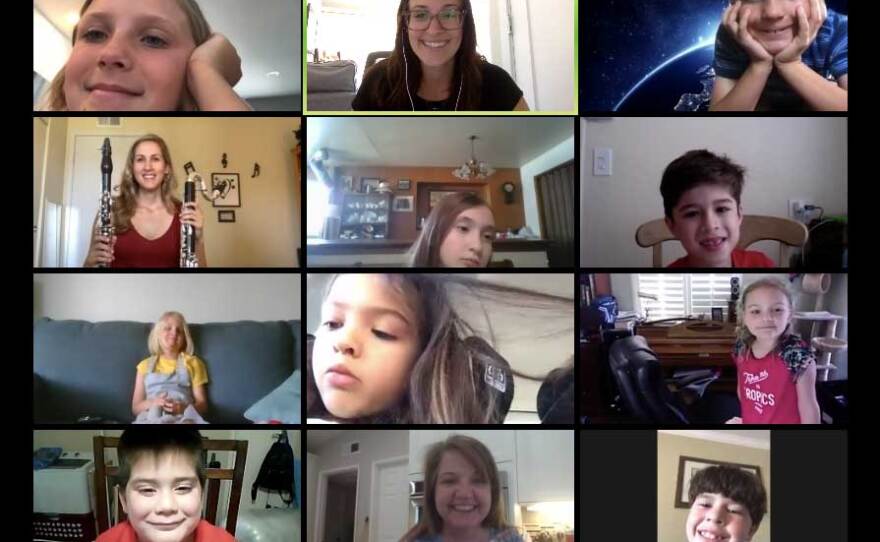The pandemic has taught local nonprofit Classics 4 Kids not just how to adapt, but the necessity of the work they've been doing all along.
"Children absolutely need the arts," said Dana Zimbric, artistic director and conductor of Classics 4 Kids, which helps approximately 20,000 San Diego students each year experience music education through the performing arts.
"It helps them cope and it helps them manage all the things that have been going on. So if anything, it's just proved to me how it's important to be flexible and adaptable, both from an organization side — like we have to work hard and make sure we can still reach these students with music — but it's also shown me just how incredibly important it is that children have access to arts in their lives," said Zimbric.
Generally, the organization brings entire classes to a concert hall for a performance and educational presentation, using their own orchestra, and their mission has an emphasis on reaching Title 1 schools. Until the beginning of the pandemic, the in-person model was the foundation of their approach.
"So, it was a really big shock when suddenly we were not able to do our programs the way that we have always done them," said Zimbric.
This week, the California Music Educators Association granted Classics 4 Kids their Music Industry Leadership award, recognizing their role not just in this community but as a model for other organizations and educators across the state. Zimbric thinks this award speaks to their ability to quickly offer virtual programs in the spring as well as continue their focus on making meaningful programming accessible to as many students as possible. They'll be honored in a virtual ceremony on Feb. 18.
The pandemic cast a harsh light on existing inequalities in education, as well as exacerbated what's at stake. While digital platforms increase access, Classics 4 Kids is also trying to find a way to adapt virtually and still reach students with limited digital access.
And according to the San Diego County Office of Education COVID-19 dashboard this week, there are still 423,000 K-through-12 students whose learning is entirely remote.
"It’s been hard for families that have all the resources, and it’s been extremely hard for families that don’t have resources," Zimbric said. "When I think about how the arts can help provide students with language for coping, the ability to recognize emotions in themselves, the ability to communicate those emotions to others, just how to navigate all of this — that's just one aspect of what a good arts education can do. But I feel like that's at stake for students that really, really, really desperately need support as they try to survive this time."

During the pandemic, Classics 4 Kids developed a digital Meet and Greet program for schools. Musicians join a remote learning class, talk about their instrument, play a short performance, field questions from the students and discuss any composers the musician performed.
It's a simple model for teachers to fit into their daily digital classroom meetings. It's also free.
Last year, more than 3,500 students participated in the Meet and Greet program, and they hope to see 5,000 students by the close of this school year, all without charging schools.
Throughout the pandemic, Classics 4 Kids has benefited from various support loans and individual donors, but they're also seeing some reduced programming expenses, such as the cost of theater rentals or school buses.
Moving forward, the group plans to continue some of the digital models, even after their live, in-person programs return. This will ensure more students have access to the arts.
They've also learned they can reach more students by taking smaller groups of musicians directly out into communities, so the smaller Meet and Greet-style programs may evolve to be in-person appearances as well.
Plus, the San Diego County Office of Education's public, local access TV channel will broadcast some of their previous live performances this spring.
Ultimately, they're anxious and hopeful to return to live, concert hall performances as well, and to share that immersive experience with students.
"What I miss the most — and I think a lot of people feel this regardless of your space or what you do — there’s just a feedback loop," said Zimbric, who has been with Classics 4 Kids since 2003. "I would work with an orchestra, we'd prepare a piece of music, we would prepare a script, there would be a deadline, we'd go to a theater, and for Classics 4 Kids it would be filled with all these beautiful children who were so excited to be there. There was just something so beautiful about sharing and experiencing that."







